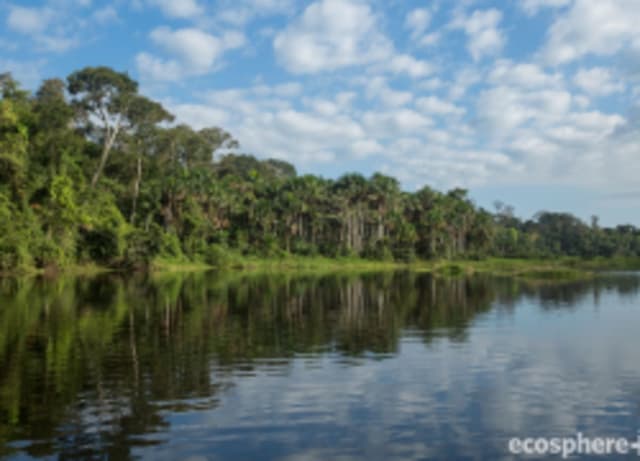Go the extra mile
Towards a cooler planet
Coffee sustainability: Pioneering new paths in coffee production
5 February 2025
Coffee sustainability is becoming a pressing issue as traditional methods of coffee cultivation threaten both the environment and the livelihoods of farmers. Innovative approaches, led by visionary growers like David Benitez, are transforming the coffee industry, ensuring that both the planet and its people thrive.
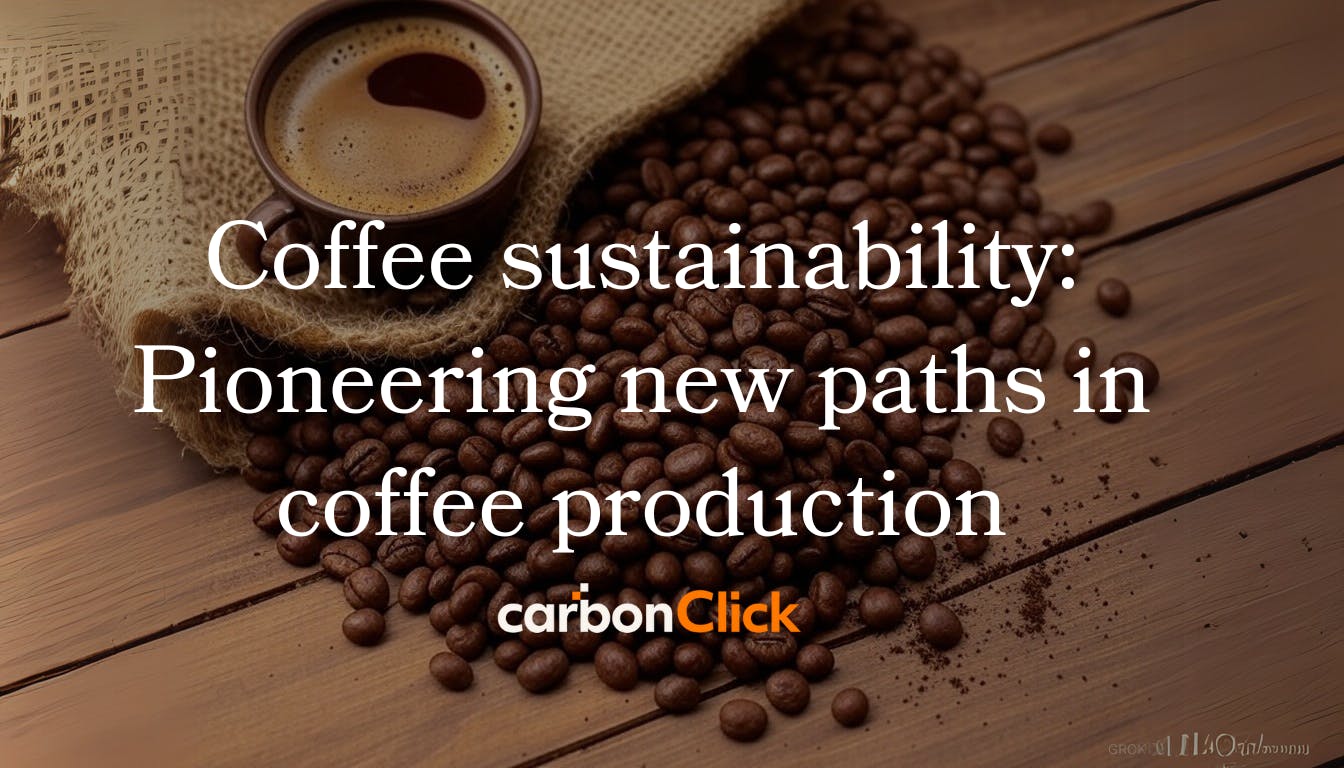
The coffee crisis
The coffee industry is facing a crisis. Despite coffee being the world's second most traded commodity after crude oil, the growers who cultivate it often remain impoverished. Many farmers are compelled to abandon their plantations due to the financial strain imposed by conventional farming practices. This situation raises pressing questions about the ethics of coffee consumption and production.
While consumers pay premium prices for coffee, the farmers receive a mere fraction of that value. This disparity leads to a cycle of poverty that drives many growers to deforest land to cultivate more coffee, exacerbating environmental degradation. Each cup of coffee consumed is estimated to destroy approximately five square centimetres of rainforest, highlighting the urgent need for sustainable practices.

Meet David Benitez: A pioneer in coffee sustainability
David Benitez stands out as a beacon of hope in the coffee industry. Residing in the Honduran Highlands, he has become a pioneer in coffee sustainability. His innovative methods contrast sharply with conventional practices that prioritise yield over environmental health.
David’s approach is rooted in traditional farming practices, enriched by modern agricultural knowledge. He advocates for shade-grown coffee cultivation, which not only improves the quality of the beans but also protects the surrounding ecosystem. By employing these methods, he aims to inspire fellow farmers to adopt more sustainable practices that benefit both the land and their livelihoods.
The impact of conventional coffee farming
The conventional coffee farming model is damaging. Sun-grown coffee, which dominates the market, requires extensive land clearing and heavy water usage. This method not only leads to deforestation but also contributes to soil degradation and loss of biodiversity.
Moreover, the reliance on chemical fertilizers and pesticides diminishes soil health and contaminates water sources. The consequences are dire, impacting not just the environment but also the farmers who depend on these lands for their survival. As climate change intensifies, the vulnerabilities of this system become even more pronounced, leading to inconsistent harvests and diminishing profits.

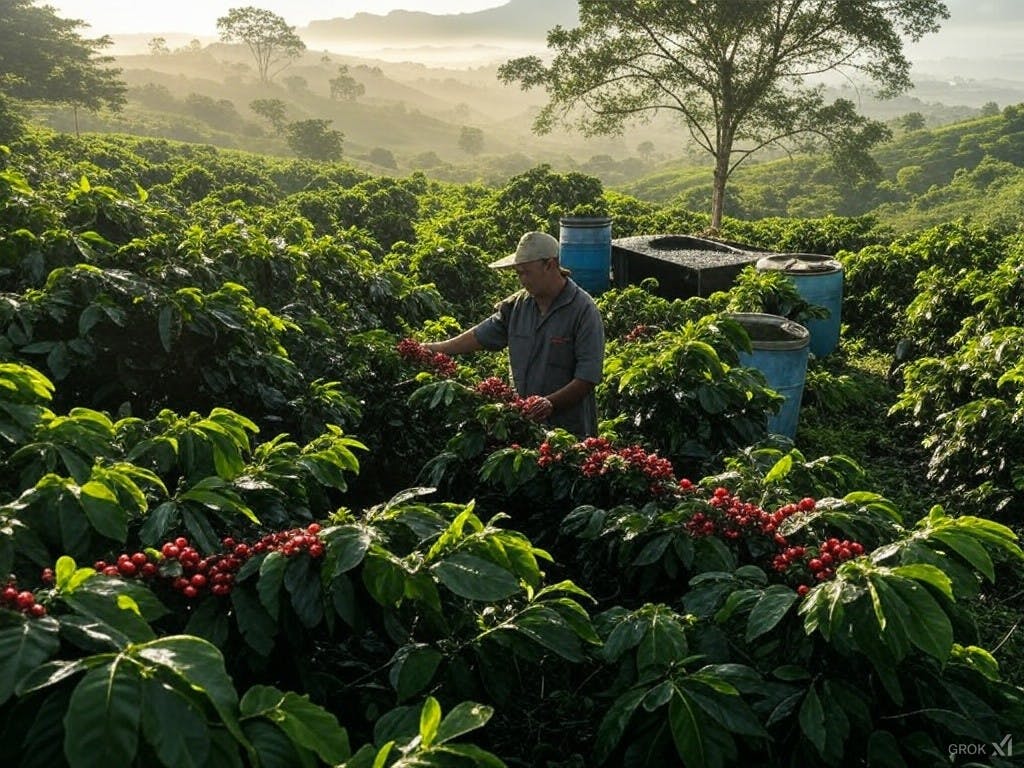
Innovative growing methods
Innovative growing methods are essential for the future of coffee sustainability. David Benitez has introduced the practice of intercropping, where coffee plants are grown alongside shade trees. This method not only protects the coffee from harsh sunlight but also enriches the soil with organic matter.
Additionally, Benitez employs water conservation techniques, significantly reducing the amount needed for irrigation. By washing coffee in barrels and recycling the water for compost, he maximises resource efficiency. This holistic approach not only yields higher quality coffee but also fosters a healthier ecosystem.
The shift to organic farming
The shift to organic farming represents a critical turning point for coffee producers. Transitioning from conventional to organic practices can be challenging, often resulting in an initial drop in production. However, as David Benitez demonstrates, the long-term benefits far outweigh the temporary setbacks.
Organic farming not only improves soil health but also reduces the risk of crop diseases. By avoiding synthetic chemicals, farmers can cultivate resilient coffee plants that are better equipped to withstand climate change and pests. As the market for organic coffee continues to grow, farmers who adopt these practices can achieve better financial stability and contribute to a more sustainable coffee industry.
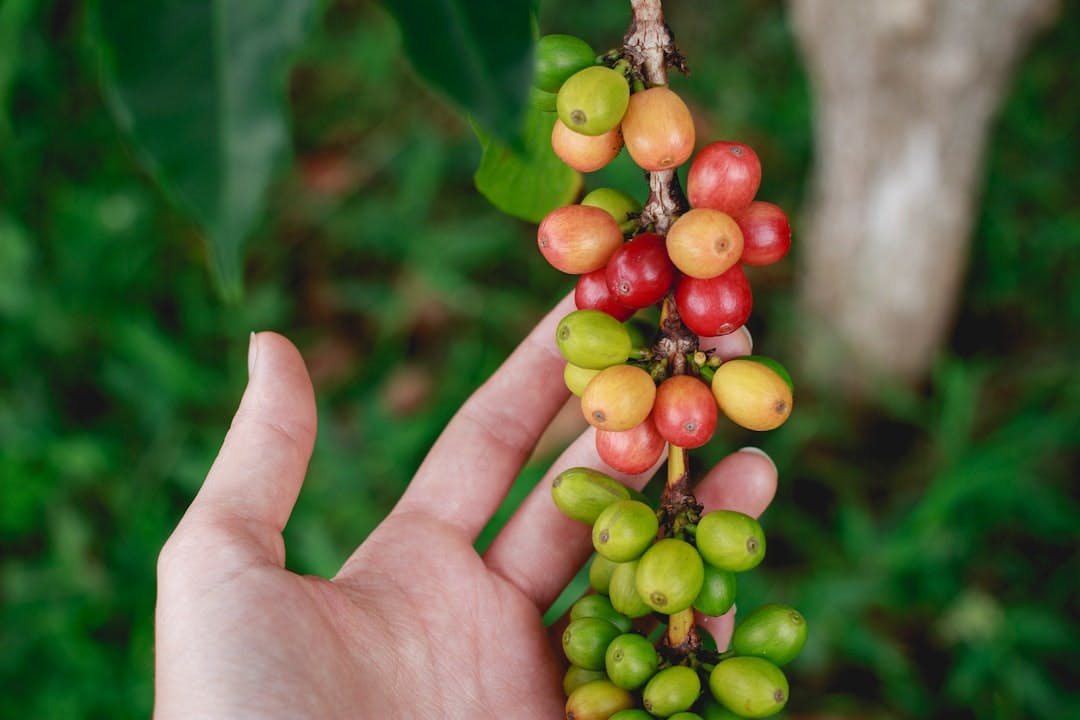
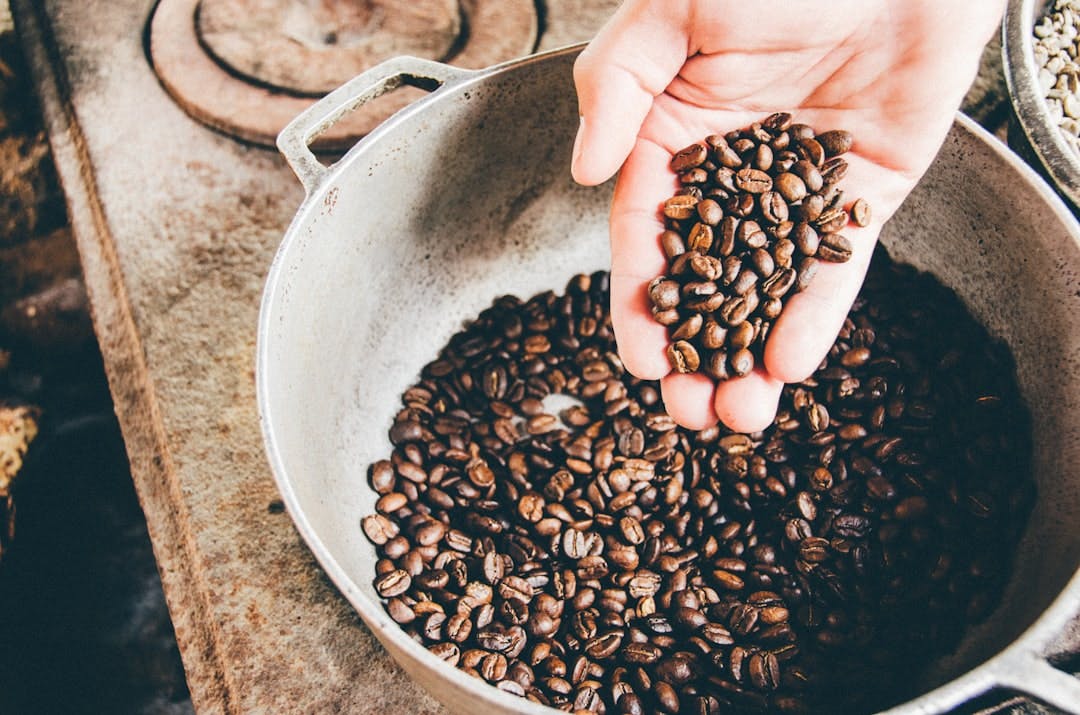
Lupin coffee: A local alternative
Lupin coffee is emerging as a sustainable alternative to traditional coffee, particularly in regions like Germany. This innovative beverage is made from roasted lupin beans, a legume that thrives in local climates.
The benefits of lupin coffee extend beyond taste. Growing lupins helps improve soil health while reducing carbon emissions associated with transporting coffee from distant countries. By cultivating lupins, farmers can contribute to local economies and create a more sustainable agricultural model.
Environmental benefits of Lupin cultivation
Lupins have deep tap roots that allow them to access water in drier conditions, promoting resilience in changing climates. This characteristic makes them a valuable crop in regions experiencing water scarcity.
Additionally, lupin cultivation can enhance biodiversity, as these plants provide habitat for various species. By integrating lupins into farming systems, we can foster healthier ecosystems while meeting local demand for coffee alternatives.


The rise of environmentally-conscious practices
As awareness of climate change grows, coffee growers are increasingly adopting environmentally-conscious practices. These methods not only promote environmental sustainability but also improve the livelihoods of farmers.
Incorporating agroforestry, cover cropping, and organic farming into coffee production helps to lessen the effects of climate change. These practices enhance soil health, reduce water usage, and increase resilience against pests and diseases.
Agroforestry as a key strategy
Agroforestry involves integrating trees and shrubs into coffee plantations. This approach provides shade for the coffee plants, reducing water stress and improving bean quality.
Moreover, the trees contribute organic matter to the soil, enhancing its fertility and promoting biodiversity. Farmers who adopt agroforestry can enjoy higher yields and better-quality coffee while playing a crucial role in carbon sequestration.
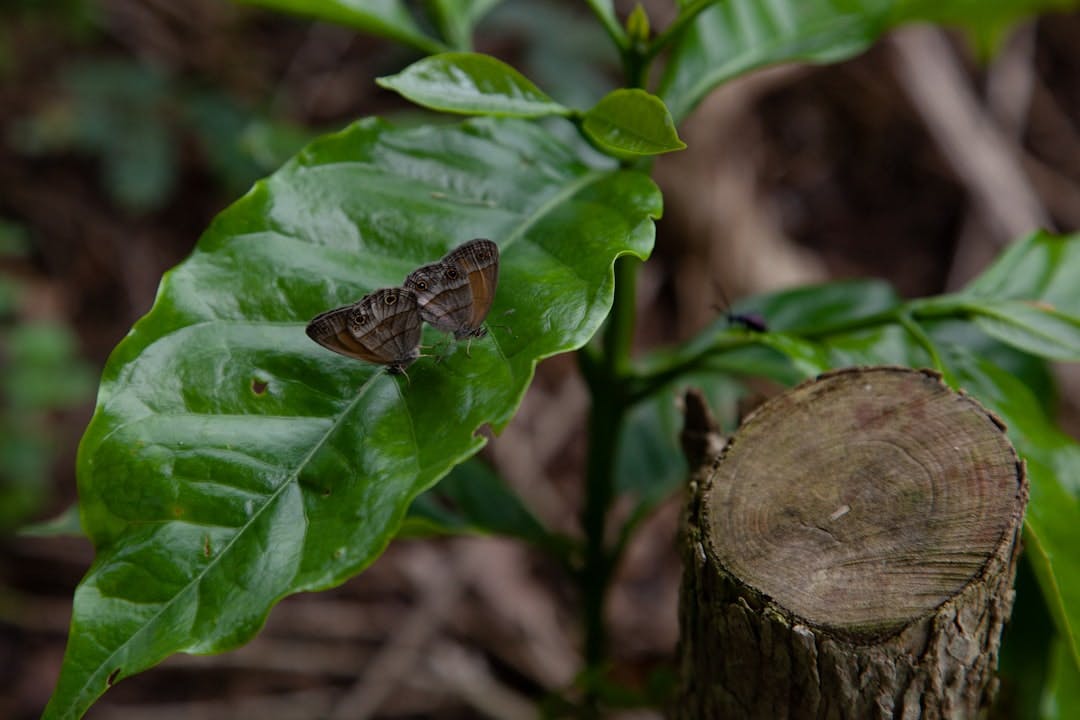
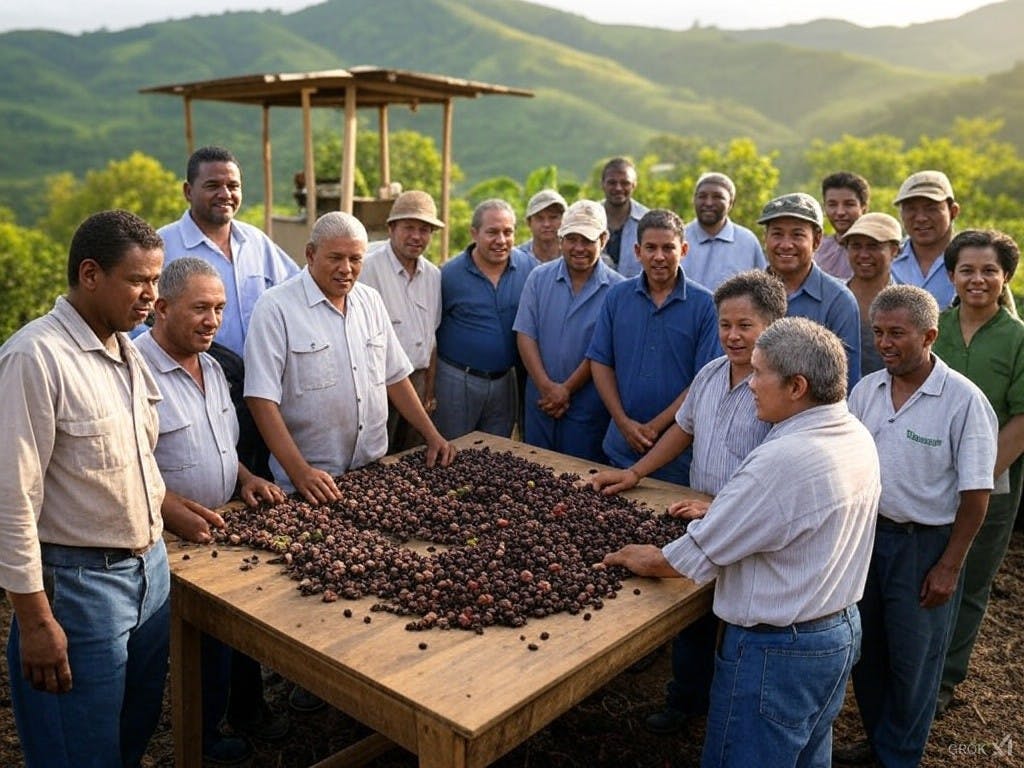
The Katracha initiative: Supporting small farmers
The Katracha Initiative is revolutionising the way coffee is produced and marketed in Honduras. By focusing on direct trade, the initiative connects small farmers with consumers, ensuring fair compensation for their products.
Through this model, farmers receive a higher price for their coffee, allowing them to invest in their farms and communities. The Katracha Initiative also provides resources for education and training, empowering farmers to adopt sustainable practices.
Empowering communities through direct trade
Direct trade eliminates the middlemen who often take a large cut of profits, ensuring that farmers receive a fair share. This model fosters stronger relationships between producers and consumers, creating a sense of community and shared purpose.
By prioritising social and sustainable practices, the Katracha Initiative is setting a precedent for how coffee can be produced sustainably while supporting smallholder farmers.
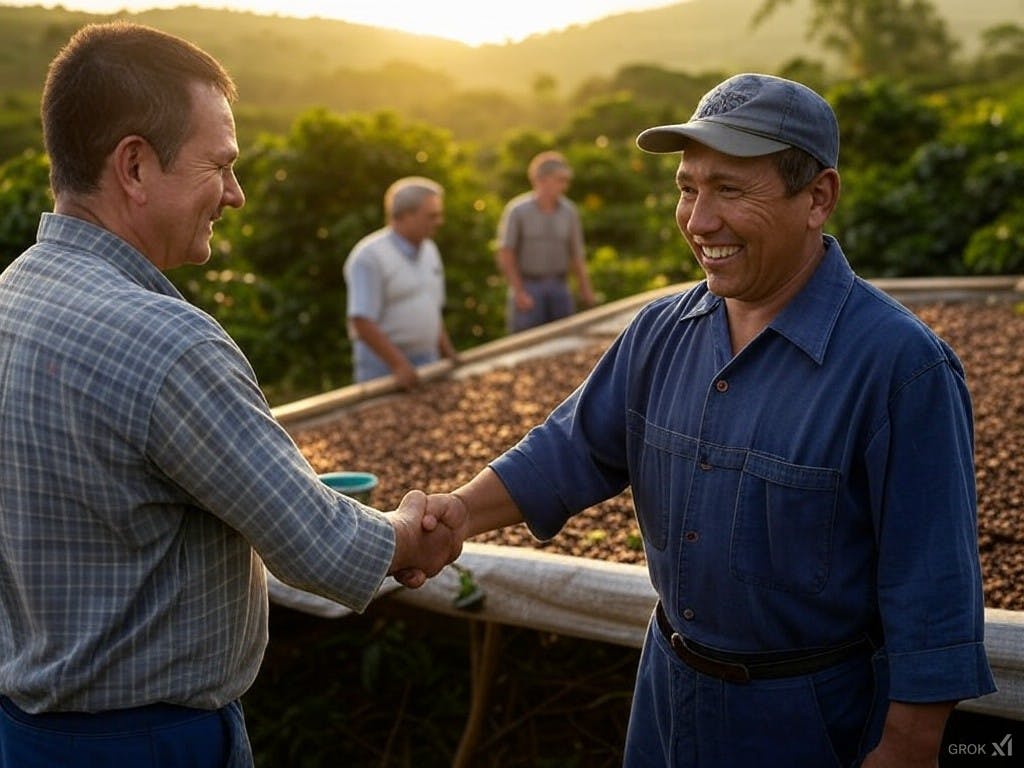
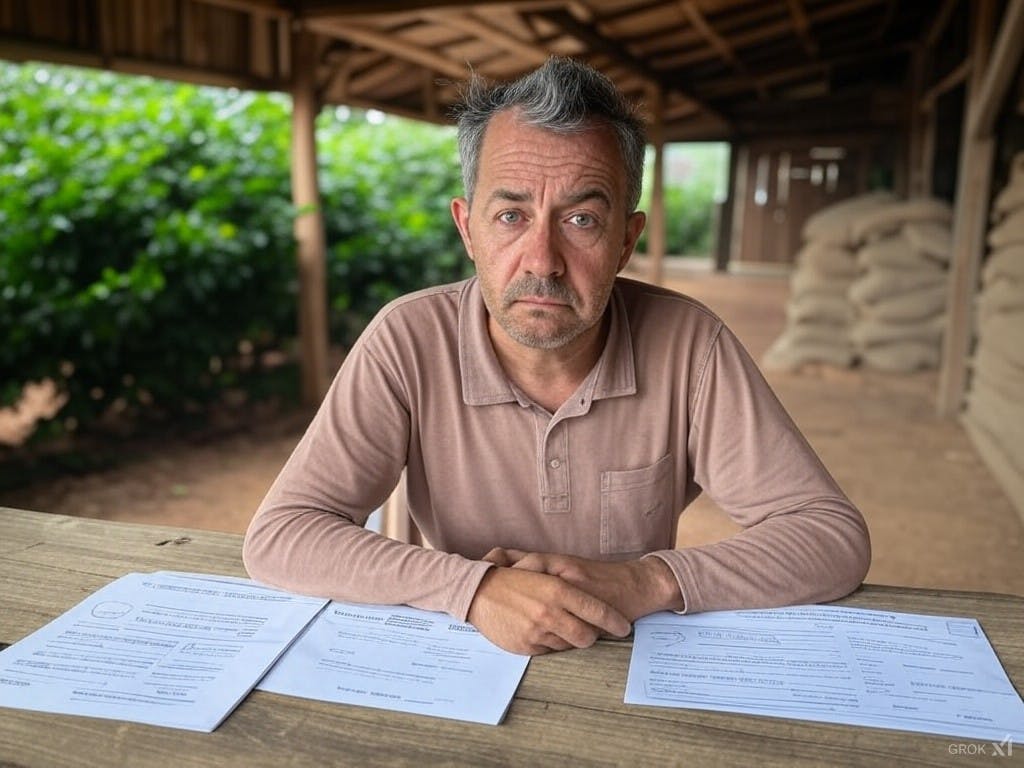
Fair trade: Is it enough?
While Fair Trade has made strides in promoting responsible coffee production, it often falls short of addressing the deeper issues faced by farmers. Many farmers still struggle to make ends meet, as Fair Trade prices do not always cover their production costs.
Additionally, the bureaucratic nature of Fair Trade certification can be a barrier for small farmers. As a result, some producers find themselves locked out of the system, missing out on the benefits it promises.
Rethinking fair trade models
To create a more equitable coffee industry, it is crucial to rethink Fair Trade models. Alternative approaches, like those employed by the Katracha Initiative, focus on building direct relationships and ensuring that farmers receive a living wage.
These models not only provide fair compensation but also empower farmers to make decisions that benefit their communities and the environment. By prioritising people over profits, we can create a more sustainable coffee industry.
Building resilient farms
Building resilient farms is essential for the future of coffee sustainability. By diversifying crops and implementing sustainable practices, farmers can create systems that withstand climate change and market fluctuations.
Crop rotation, intercropping, and organic farming are just a few strategies that can enhance farm resilience. These methods improve soil health, reduce dependence on chemical inputs, and increase biodiversity within farming systems.
Community collaboration for resilience
Collaboration among farmers is key to building resilience. By sharing knowledge and resources, farmers can learn from each other's experiences and adopt best practices.
Community initiatives, like the Katracha Initiative, provide a platform for farmers to connect, share ideas, and support one another. This sense of community fosters a culture of sustainability and innovation, vital for the future of coffee production.
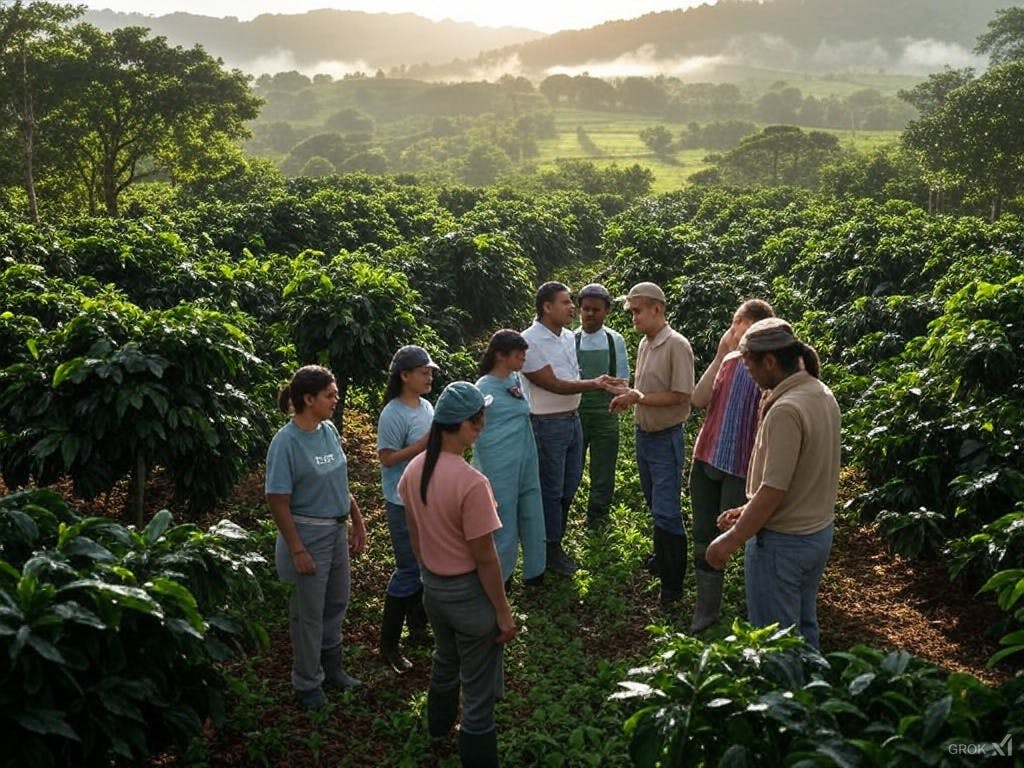
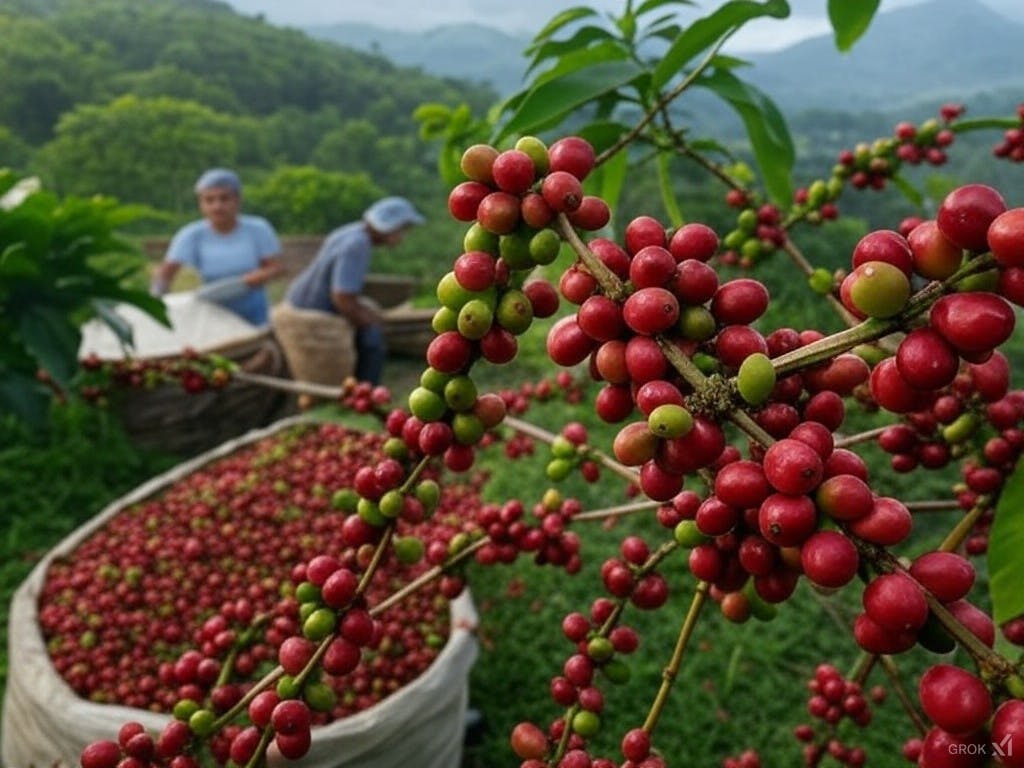
The coffee cherry company: Redefining waste
The Coffee Cherry Company is at the forefront of a transformative movement in coffee sustainability. By focusing on the often-overlooked byproducts of coffee production, they are redefining waste and creating new opportunities. This innovative approach not only reduces environmental impact but also provides additional income streams for farmers.
Each coffee cherry contains a wealth of nutrients that are typically discarded during processing. The Coffee Cherry Company utilises these cherries to create a variety of products, including flour and snacks. This not only minimises waste but also maximises the value derived from each harvest.
Creating new markets for coffee byproducts
New markets for coffee byproducts are emerging as sustainability becomes a priority. The Coffee Cherry Company is leading the way by developing products that utilise the entire coffee cherry, ensuring that nothing goes to waste. This not only helps the environment but also supports farmers financially.
By tapping into the nutritional potential of coffee cherries, the company is creating innovative food products that can be marketed globally. This shift not only benefits the environment but also opens up new avenues for revenue for farmers who previously saw their byproducts as waste.
Experimenting with coffee cherry flour
One of the most exciting developments from the Coffee Cherry Company is the creation of coffee cherry flour. This nutritious flour is made from the dried skins of the coffee cherries, which are packed with antioxidants and fibre. The flour can be used in a variety of recipes, from baked goods to smoothies.
Experimentation with coffee cherry flour has revealed a unique flavour profile that adds depth to culinary creations. Chefs and home cooks alike are beginning to embrace this sustainable ingredient, recognising its potential to enhance both nutrition and taste.
David Benitez's vision for the future
David Benitez's vision for the future of coffee is one rooted in sustainability and community empowerment. He believes that by utilising every part of the coffee plant, farmers can create a more resilient and profitable farming model. This holistic approach not only addresses environmental concerns but also supports local economies.
Benitez is actively working to educate other farmers about the benefits of sustainable practices, including the use of coffee byproducts. His goal is to inspire a new generation of coffee growers who prioritise sustainability and community well-being over short-term profits.
Through initiatives like the Coffee Cherry Company and the Katracha community, Benitez is demonstrating that a different approach to coffee production is possible. By embracing innovation and sustainability, he is paving the way for a brighter future for coffee farmers worldwide.
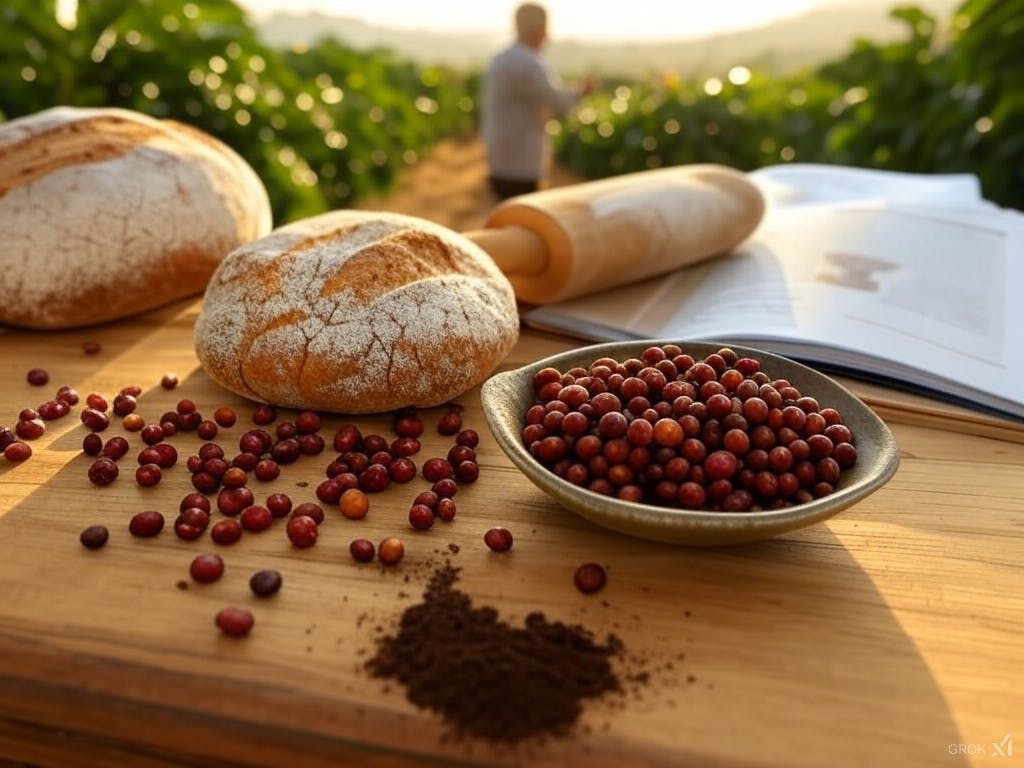
17 South Street
Auckland 1010
New Zealand
info@carbonclick.com- -
- X
Sign up. Be inspired. Get clicking.
Subscribe now to stay up to date with CarbonClick, carbon offsetting and climate action.
By signing up you agree to our Privacy Policy.

